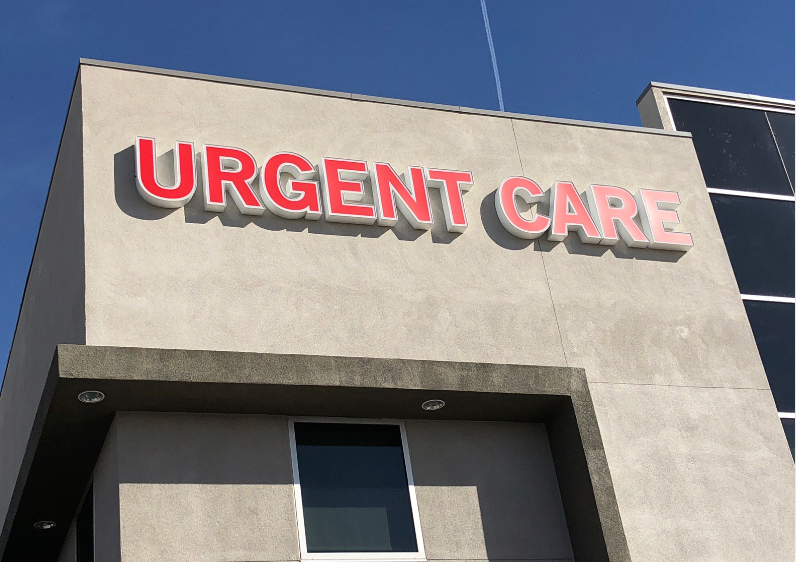Urgent Care vs. Clinic Services

When you’re not feeling well, deciding where to go for care is confusing. Do you go to urgent care or a clinic? Both are good for different health issues and serve different purposes. Understanding the difference between urgent care and clinic services is key to making informed decisions and saving you time, money and stress.
What is a Clinic?
Clinics are healthcare facilities that offer a variety of services, mostly routine, preventive or non-urgent care. They can be standalone facilities or part of a larger healthcare network, offering scheduled appointments with multiple healthcare providers.
Services Offered by Clinics:
-
Routine Checkups and Screenings: This includes annual physicals, vaccinations and wellness screenings that are necessary for overall health.
-
Preventive Care: Clinics offer advice on healthy living and preventive measures like vaccinations to prevent diseases.
-
Chronic Conditions: For people with long term health issues like diabetes, asthma or heart disease, clinics offer ongoing care and management.
-
Non-Urgent Medical Issues: For less serious health issues like mild allergies or minor skin conditions, a clinic is the way to go.
Types of Clinics:
-
Primary Care Clinics: These are the first stop for general health issues, provide full care and refer to specialists if needed.
-
Specialty Clinics: Focused on specific areas of health like dermatology for skin issues or cardiology for heart issues, these clinics offer specialized care.
-
Community Clinics: Aimed at serving underserved populations, these clinics offer affordable healthcare services and often provide sliding scale fees for those without insurance. For more details, you can visit https://lackeyclinic.org/williamsburg-free-doctor-dentist-low-cost-medications/
-
Walk-in Clinics: Located in pharmacies and other convenient locations, these clinics handle minor issues and preventive services no appointment needed.
What is Urgent Care?
Urgent care centers are designed to fill the gap between the ER and a traditional clinic. They provide immediate care for non-life threatening conditions that need attention. Most urgent care centers are open after hours, evenings, weekends and holidays.
Services Offered by Urgent Care:
-
Minor Injuries: Urgent care is good for sprains, minor cuts or burns that need immediate but not ER level care.
-
Sudden Illnesses: If you have flu symptoms, fever or infections that can’t wait for a clinic appointment, urgent care is the way to go.
-
Symptoms That Need Attention Now: For health issues that are urgent but not critical enough for the ER like severe sore throats or high fevers.
-
When Your Doctor Isn’t Available: Urgent care is a good alternative when you can’t get an appointment with your regular doctor.
Urgent Care vs Clinics:
-
Purpose and Services: Clinics are for routine, preventive care and management of chronic conditions. Urgent care is for immediate health issues that need attention before a clinic appointment is available.
-
Availability and Hours: Regular clinics are open during business hours and require an appointment. Urgent care is open after hours, weekends and holidays when most clinics are closed.
-
Cost and Insurance: Clinic visits are cheaper, many accept a wider range of insurance plans and offer sliding scale fees for those without insurance. Urgent care visits are more expensive than clinic visits but less expensive than ER.
-
Wait Time: With clinics, wait time is minimal for those with appointments. But scheduling an appointment takes time. Urgent care accepts walk-ins, wait times vary but are generally faster than the ER.
Urgent Care vs Clinic
-
Choose Urgent Care If:
-
You need immediate care for non-serious symptoms outside of clinic hours.
-
You have minor injuries like sprains or need minor surgery outside regular doctor’s office hours.
-
Your doctor is not available and the issue is too urgent.
-
Choose a Clinic If:
-
You need regular health checkups, vaccinations or are managing a chronic condition.
-
Your health concerns are non-urgent and can wait for a scheduled appointment.
-
You want preventive care to maintain or improve your overall health.
Final Thoughts: Where to Go for You
It all comes down to the severity and urgency of your health issue. Clinics are for regular, scheduled and preventive care. Urgent care is for sudden and urgent health issues. By understanding the difference, you can make faster and better decisions on where to go and get the right care while saving time and money.
- Art
- Causes
- Crafts
- Dance
- Drinks
- Film
- Fitness
- Food
- Games
- Gardening
- Health
- Home
- Literature
- Music
- Networking
- Other
- Party
- Religion
- Shopping
- Sports
- Theater
- Wellness


